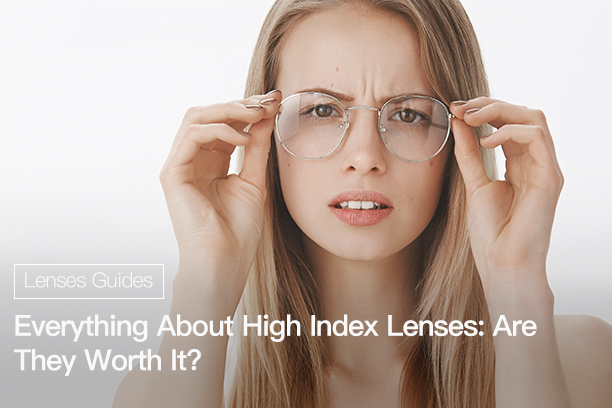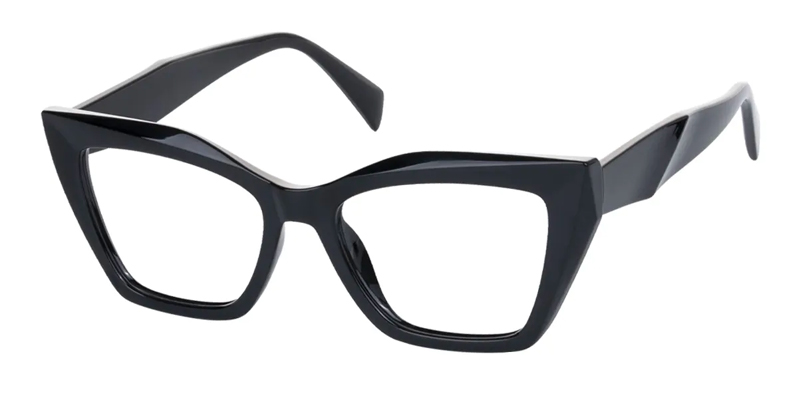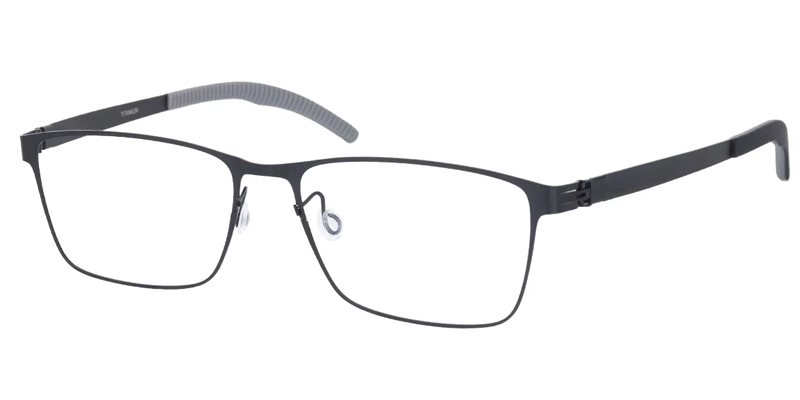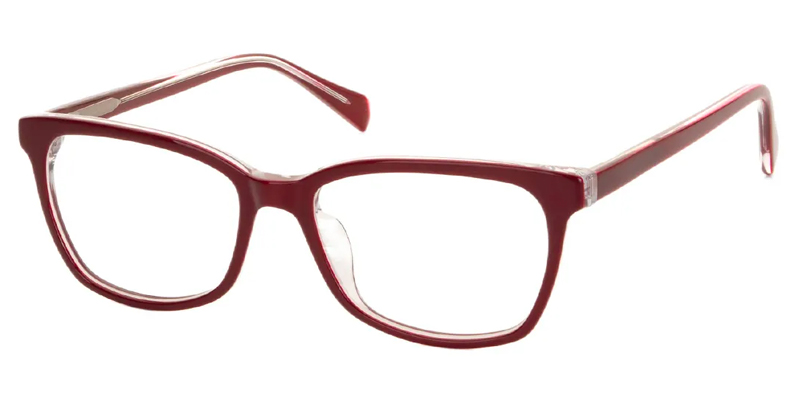- GlassesShop By FrameShop By StyleFeatured












The right lenses are crucial for a pair of eyeglasses. With advancements in optical technology, high index lenses have emerged as a popular choice among individuals with stronger prescriptions. These lenses offer a blend of improved aesthetics and functionality, making them a topic of curiosity for eyeglass wearers. After reading this article, you will learn more about high index lenses.

High index lenses are a specialized type of glasses lenses designed to address the optical challenges faced by individuals with higher prescriptions. Conventional lenses can become thick and heavy for those with strong nearsightedness, farsightedness, or astigmatism. High index lenses are engineered to refract light more efficiently, allowing them to be thinner and lighter while maintaining the same prescription power.
Traditional lenses are typically made from standard plastic (CR-39) or glass, which has a lower index of refraction. High index lenses, however, have a higher refractive index. They can bend light more effectively, requiring less material to achieve the same prescription strength.
High index lenses are crafted from various materials, each offering its own advantages. Common materials include:
High Index Plastic: These lenses are made from polymers with a higher refractive index, resulting in thinner and lighter lenses. They are more impact-resistant than glass lenses and are suitable for a wide range of prescriptions.
High Index Glass: While less common due to the fragility of glass, high index glass lenses offer exceptional clarity and scratch resistance. They are often chosen for specific prescription requirements.
1.Thinner Profile: High index lenses are noticeably thinner and more lightweight, enhancing comfort and aesthetics.
2.Reduced Distortion: Strong prescriptions in traditional lenses can lead to distortion. High index lenses mitigate this issue, providing clearer vision.
3.Fashion Flexibility: Thinner lenses allow for a wider choice of frame styles without compromising appearance.
4.Better UV Protection: Some high index materials offer built-in UV protection, safeguarding your eyes from harmful rays.
1.Cost: High index lenses can be more expensive than traditional options due to their specialized manufacturing process.
2.Reflective Glare: Some high index materials can cause more noticeable reflections, affecting clarity in certain lighting conditions.
The worth of high index lenses depends on your individual needs and preferences. If you have a strong prescription and are seeking comfort, aesthetics, and improved vision without the weight of thick lenses, high index lenses are likely worth the investment. The cost can be justified by the benefits, especially if you prioritize both functionality and style.
Choosing whether to opt for high index lenses depends on factors such as your prescription strength, lifestyle, and budget. Individuals with mild prescriptions might not experience the same thickness and weight concerns, making standard lenses sufficient.
1.Panthera

Make a bold fashion statement with our striking "Panthera" wide chunky cat-eye frame. Designed to exude confidence and empower your style, this eyewear masterpiece embraces the fusion of vintage charm and modern flair.
2.Howard

Howard is a testament to superior craftsmanship, exceptional comfort, and timeless style. With its impeccable design, lightweight titanium construction, and attention to detail, it offers a luxurious eyewear experience that surpasses expectations.
3.Buke

The clean lines and geometric shape create a sophisticated aesthetic that suits a variety of face shapes and personal styles. Whether you prefer a professional and polished look or a fashion-forward statement, these glasses effortlessly elevate your appearance.
However, for those with stronger prescriptions, high index lenses can provide significant advantages in terms of comfort, appearance, and vision quality. While they come with both advantages and disadvantages, the decision to invest in high index lenses ultimately hinges on your unique requirements and priorities. You can also consult an eye care professional before determining to invest in the lenses.

